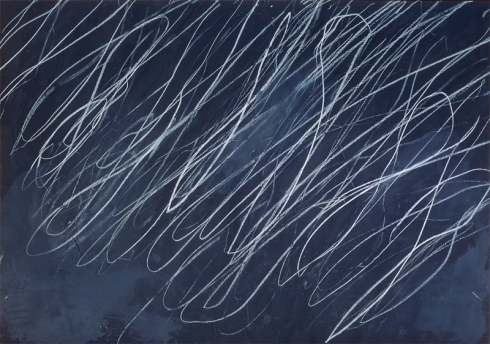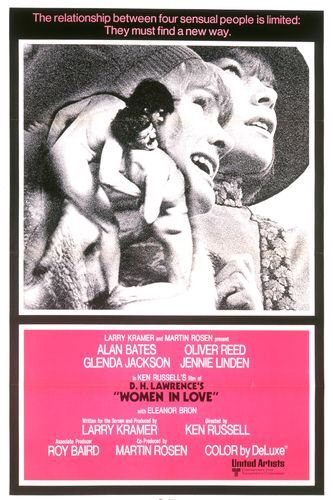Let me propose something: oblivion awaits, yet we are inclosed in the Being of the now. This now is not stationary, in spacial terms, we move through the now. A constant displacement, or displacement as a constant, distorts what is here, again spacial terms. Being is coiled in nothingness like a worm. Within this immense field that of finitude, resides the effort of the Being. Coiled as it is, it is. Whilst infinite nothingness supersedes it, this reality which is a swirl, a series of eddies that etch and sketch out various modes of Being: being-dog, being-amoeba, being-tree, being-time, being-human, being-you, etc: the worm immerses itself within itself: as an Impossible Ground. Impossibility, the Impossible, is what resides at the core function of finitude, reality and that which recapitulates it: swirls within the infinite. An unmöglich Boden gives itself to us. In this sense I am here, with you, apart from myself, for you displace me: we swirl around each other: is this gravity? Are things ‘out of place’? Is one thing ‘wrongly’ there? Do people get off the subway where they shouldn’t: not as an act of mistake, but as an act that is Impossible, filthily out of ‘place’? Simply, to disjoint philosophy here I am disjointing your-Self: that which presupposes itself, whether intentional or even knowingly ‘after the fact’ mistaken, as that which is actually ‘not right’? Do you feel that: the submerging of the ‘out of place’? And if time is to be in some sense, thought in spacial conceptual sensuality, then where does that leave the openness of the incision that is scripted onto you?

Untitled I 1967 Cy Twombly 1928-2011 Purchased 1995 http://www.tate.org.uk/art/work/P77733
As flesh is spread open, say in cunnilingus, whereby the mouth presses onto the vulva, exciting the clitoris to action, aren’t we here aware of the deepest unmöglich Boden? At least in its contemplation, the speculation, the imagination of the act, aren’t we looking into the impossible ground? Where does the tongue lead to? What is the movement of the nose? How do fingers react? Where is the placement of the floor: is it slanted, does it creek? How are we to ‘know’ – or as Eric Gardner recently exacted – understand? Must we ‘over’ stand: float above the scene? According to Octavio Paz in his (1969) Conjunctions and Disjunctions; trans. Helen R. Lane. London: Wildwood House; p. 97 “in Chinese Taoism, cunnilingus is revered as a spiritually-fulfilling practice that is believed to enhance longevity.” The tongue pressing, in a sense, wei wu wei, both are united: the genital stage is united with the oral stage. These ‘stages’ are both times (spaces?) and drives: movements of theatrical abundance. Theatralischen Überfluss the outside of the stage that is not ‘staged’ but a series of stages: an explosion of divinity. Diving into the cunnus we are, as spectators or actors (or both?), drinking from the furry cup. [cite: 1] How delicious: even for the mere ‘speculating philosopher’ I cannot ‘see’ or ‘understand’ how unmöglich Boden – that which is the being coiled in nothingness like a worm – cannot begin with drunken cunnilingus. Simply, all philosophy must take this as its starting point. In the original Taoist texts, wu wei is often associated with water and its yielding nature. Although water is soft and weak, it has the capacity to erode solid stone and move mountains. Water is without will (that is, the will for a shape), though it may be understood to be opposing wood, stone, or any solid aggregated material that can be broken into pieces. Due to its nature and propensity, water may potentially fill any container, assume any shape; given the Water cycle water may potentially go “anywhere”, even into the minutest holes, both metaphorical and actual. Droplets of water, when falling as rain, gather in watersheds, flowing into and forming rivers of water, joining the proverbial sea: this is the nature of water. [cite: 2]
Moving down the perineum, we are pressed into the anal sphincter: here we shall see the extrema excreta. The maxima and minima of anality: the explosive and the retentive. Script yourself with me: take the chest, open it up with a scalpel near the scapulae and move the incision to the navel. Follow the cut, a small cut into the epidermis, something incisive, something glorious: watch the it move. The ideation of castration anxiety will come over you: you may not notice or feel it, but it’s there: unmöglich Boden. Bumsen the unmöglich Boden: pardon my grammar, but here German is a necessary interruption into the lack of English. We are moving far too far into ourselves, the worm is coiling. Narcissism is boiling over. The worm may be ready to explode: a brilliant light shines out of the Negative concave of existence. The beginning of life/lie if not the idea/ideal forms of Plato himself arrive in this nadir: or rather they are this nadir that continues to bob about in the lacuna, a place full/fool of placenta, but also embryos, arms, stem-cells, detached penises, Aristophanes separated lovers, fellatio – but fellatio is for another topic, and is not the beginning of philosophy – the Feminine has been defined as the chthonic, that which is unmöglich Boden almost par excellence. Follow me now: down the rabbit’s hole, into the field’s of plenty that arrive toward the end of the story: or that which is presupposed as its end. What do we really posess? We do not ‘have’ a body, a body ‘has’ us: we are open to liability as soon as we ‘step on the scene’. As soon as we ‘engage’ with the impossible ground, as soon as we exist. The after-birth is that which is crawling into the worm of being: the warmth of being: the shelter of the body, disfigured, even if some of its variations are worshipped, demonised, problematic, etc. The body itself is that which cries, tears scream out for a type of disfigurement poses a question to us: the mirror of Narcissus: that which reflects but isn’t us: that which demonstrates. A mirror doesn’t only optically reflect: or rather optics shouldn’t be privileged here: it is the ‘touch’ the vibration of the back: the neck: the hyoid: the glandular abscess. Cancerous tumours grow outward from the colon, but where do they go? The root is suffering, yes, but madness is prevalent. When Schumacher damaged his brain, the brain damaged ‘fans’ waved themselves about with Ferrari flags in support of this man, although their support was meaningless in the physical sense, it can be derived that they, at the centre of the fungus that is being, Being-as-It-Is now but not then or when under-stand that humanity has a brain haemorrhage: almost an inherent haemorrhaging to the Other, in Sartrean terms.
How does one end such non-sense > sense? A place where non-sense is greater than sense? To think otherwise than this specious sentence that precedes is how! For what I am talking about is sense par excellence. Cunnilingus is sensual, sensuous, sexual – what is better than a common sense philosophy based on the body of the homo sapien? Perhaps instead of ‘flash-mobs’ we might have ‘flesh mobs’ – globs of apolitical-potical goop dripping juicy sauces into the base concave of the Negative? Delighting like faeries dancing on a pound of infinite light? As Jean-François Lyotard might lick his philosophyfrom his (1974) Libidinal Economy [cite: 3]
Open the so-called body and spread out all its surfaces: not only the skin with each of its folds, wrinkles, scars, with its great velvety planes, and contiguous to that, the scalp and its mane of hair, the tender pubic fur, nipples, nails, hard transparent skin under the heel, the light frills of the eyelids, set with lashes – but open and spread, expose the labia majora, so also the labia minora with their blue network bathed in mucus, dilate the diaphragm of the anal sphincter, longitudinally cut and flatten out the black conduit ofthe rectum, then the colon, then the caecum, now a ribbon with its surface all striated and polluted with shit; as though your dress maker’s scissors were opening the leg of an old pair of trousers, go on, expose the small intestines’ alleged interior, thejejunum, the ileum, the duodenum, or else, at the other end, undo the mouth at its corners, pull out the tongue at its most distant roots and split it, spread out the bats’ wings of the palate and its damp basements, open the trachea and make it the skeleton of a boat under construction; armed with scalpels and tweezers, dismantle and lay out the bundles and bodies of the encephalon; and then the whole network of veins and arteries, intact, on an immense mattress, and then the lymphatic network, and the fine bony pieces of the wrist, the ankle, take them apart and put them end to end with all the layers of nerve tissue which surround the aqueous humours and the cavernous body of the penis, and extract the great muscles, the great dorsal nets, spread them out like smooth sleeping dolphins. Work as the sun does when you’re sunbathing or taking grass. And this is not all, far from it: connected onto these lips, a second mouth is necessary, a third, a great number of other mouths, vulvas, nipples. And adjoining the skin of the fingertips, scraped by the nails, perhaps there should be huge silken beaches of skin, taken from the inside of the thighs, the base of the neck, or from the strings ofa guitar. And against the palm, all latticed with nerves, and creased like a yellowed leaC set potter’s clays, or even hard wooden handles encrusted with jewels, or a steering wheel, or a drifter’s sail arc perhaps required. Don’t forget to add to the tongue and all the pieces of the vocal apparatus, all the sounds of which they arc capable, and moreover, the whole selective network of sounds, that is, the phonological system, for this too belongs to the libidinal ‘body ‘ , like colours that must b e added to retinas, like certain particles to the epidermis, like some particularly favoured smells to the nasal cavities, like preferred words and syntaxes to the mouths which utter them and to the hands which write them. It is not enough, you sec, to say, like Bellmer, that the fold in the armpit of the child, dreamily intent, her elbow on the table and chin in her hand, could ((llmt as [!laloir pour) the folds ofher groin, or even as the juncture of the lips of her sex. The question of ‘counting as’, don’t urge us to ask it, far less to resolve it. It is not a part ofthe body, of what body? – the organic body, organized with survival as its goal against what excites it to death, assured against riot and agitation – not a part which comes to be substituted for another part, like, for example, in the case of this little girl, the fleshiness of the arm for that of the thighs and its faint fold for the vaginal slit; it is not this displacement of parts, recognizable in the organic body of political economy (itself initially assembled from differentiated and appropriated parts , the latter never being without the former) , that we first need to consider. Such displacement whose function is representation, substitution, presupposes a bodily unity, upon which it is inscribed through transgression. There is no need to begin with transgression, we must go immediately to the very limits of cruelty, perform the dissection of polymorphous perversion, spread out the immense membrane of the libidinal ‘body’ which is quite different to a frame. It is made from the most heterogeneous textures, bone, epithelium, sheets to write on, charged atmospheres, swords, glass cases, peoples, grasses, canvases to paint. All these zones are joined end to end in a band which has no back to it, a Moebius band which interests us not because it is closed, but because it is one-sided, a Moebian skin which, rather than being smooth, is on the contrary (is this topologically possible?)
Let me let Lyotard finish his licking, (he keeps in ticking: click-clock, click-cock, no that is too far for now let’s stay with the chthonic vulva?) Is ‘it’ chthonic?:
There is no need to begin with transgression, we must go immediately to the very limits of cruelty, perform the dissection of polymorphous perversion, spread out the immense membrane of the libidinal ‘body’ which is quite different to a frame. It is made from the most heterogeneous textures, bone, epithelium, sheets to write on, charged atmospheres, swords, glass cases, peoples, grasses, canvases to paint. All these zones are joined end to end in a band which has no back to it, a Moebius band which interests us not because it is closed, but because it is one-sided, a Moebian skin which, rather than being smooth, is on the contrary (is this topologically possible?) covered with roughness, corners, creases, cavities which when it passes on the ‘first’ turn will be cavities, but perhaps on the ‘second’, lumps. But as for what turn the band is on, no-one knows nor wiII know, in the eternal turn. The interminable band with variable geometry (for nothing requires that an excavation remain concave, besides, it is inevitably convex on the ‘second’ turn, provided it lasts) has not got two sides, but only one, and therefore neither exterior nor interior.
It is certainly not a libidinal theatre then, no density, intensities running here and there, setting up, escaping, without ever being imprisoned in the volume of the stage/auditorium. Theatricality and representation, far from having to be taken as libidinal givens, a fortiori metaphysical, result from a certain labour on the labyrinthine and Moebian band, a labour which prints these particular folds and twists, the effect of which is a box closed upon itself, filtering impulses and allowing only those to appear on the stage which come from what will come to be known as the exterior, satisfying the conditions of interiority. The representative chamber is an energetic dispositif. To describe it and to follow its functioning, that’s what needs to be done. No need to do a critique of metaphysics (or of political economy, which is the same thing), since critique presupposes and ceaselessly creates this very theatricality; rather … forget it, that’s the position of the death drive, describe these foldings and gluings, these energetic vections that establish the theatrical cube with its six homogenous faces on the unique and heterogeneous surface. To go from the pulsion to representation, but without allowing oneself, in order to describe this implantation, this sedentarization of the influxes, without allowing oneself the suspect facility of lack, the trick facility of an empty Alterity, of a Zero whose silence is about to be shattered by the demand which disturbs it (demand, already speech then? and addressed already, and to something? yes, to this Other; and by something, which is therefore already able to speak? yes, whether in gestures, tears, fury, the infatuated suckling’s torpor, interjections, as they say), so that with this trick of the demand and the Zero’s silence, well, it remains only to inaugurate the theatre and power, and set them to work, the theatre of power where satisfactions will dupe the desire originating from this alleged lack itself. Quite the contrary, it is necessary, we will come to this later, to describe the business ofthe cube starting with the opened and exposed band of the libidinal body, according to the unique face without verso, the face which hides nothing.
We should not continue to confuse the closure of representation, that sarcastic discovery, that sham dropping of the scales from our eyes, by those thinkers who come and tell us: what is outside is really inside, there is no outside, the exteriority of the theatre is just as much its interiority – don’t mix up this sad piece of news, this cacangelism which is only the other side of evangelism, this wretched news that the artefact-bearers running along their little wall behind the backs of slaves who are bound and seated at the bottom of their cave, do not even exist, or what amounts to the same: that they themselves are only shadows in the cave of the sunlit world, reduplication of sadness – don’t go confilsing this crestfallen message and this representation of an entirely closed theatre with our Moebian-Iabyrinthine skin, single-sided patchwork of all the organs (inorganic and disorganized) which the libido can traverse: for however well it is closed upon itself, it too, like a good Moebius band, is not at all closed in the sense of a volume, it is infinite, and contrary to the representative cube, intensities run in it without meeting a terminus, without ever crashing into the wall of an absence, into a limit which would be the mark of a lack, there is nothing the libido lacks in reality, nor does it lack regions to invest, the slender and very dark finger of her left hand which, in a conversation, the young woman, anxious because she is afraid of what she believes to be your erudition, passes over her eyebrow, while in the other hand she pulls at a cigarette – here is a real region to invest, one can die for it, one can give all one’s organicity, one’s ordered body, one’s functional arrangement of organs, one’s memory oforgans, one’s socio-professional status, one’s supposed past and one’s supposed future, one’s agenda and one’s mtimate theatre, one can feci like paying very dearly, exorbitantly, for this finger which is like an engraver’s stylus and the whole orbital space, cranial, vaginal, that it engenders around the eye. And it is not because it is prohibited that it is invested, not because it is represented, beyond a stage-set and because one hasn’t the right to climb onto the stage – but because one desires to climb up there and seize it! The libido never fails to invest regions, and it doesn’t invest under the rubric of lack and appropriation. It invests without condition. Condition is rule and knowledge.”
The (b)end.

Édouard-Henri Avril’s depiction of cunnilingus in the spread-eagle position.
Courtesy of:http://en.wikipedia.org/wiki/Cunnilingus





